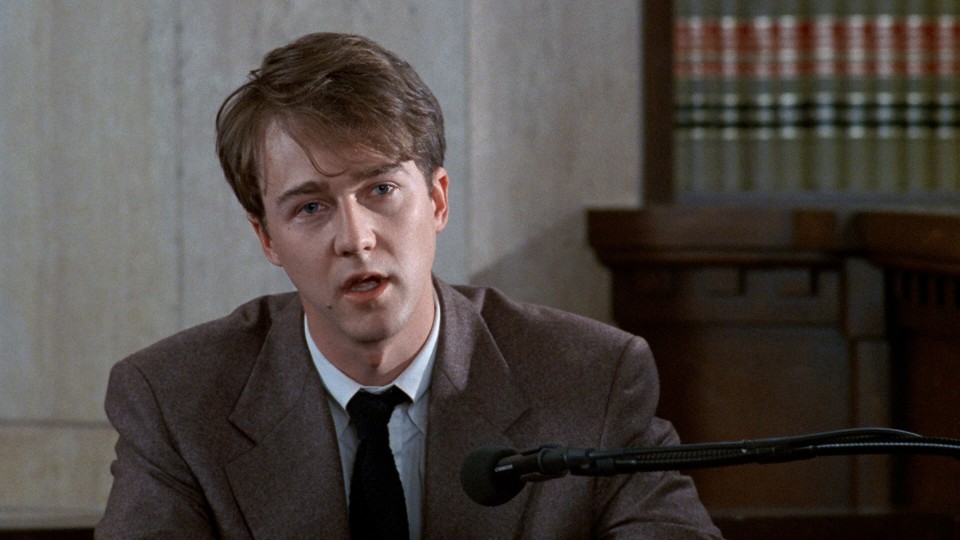
The 1990s saw a rise of young auteurs, similar to that of the 70s, with filmmakers such as Richard Linklater, David Fincher, Paul Thomas Anderson, Quentin Tarantino, and Sam Mendes coming to fruition. Few decades have produced quite as many masterpieces, as the 90s saw the development of independent cinema for a mainstream audience, as well as an unusually original slate of big budgeted studio films.
When looking back on the great films of the 90s, many of the same titles, such as The Shawshank Redemption, Silence of the Lambs, Fight Club, Schindler’s List, or Trainspotting are thrown around, but there were many great films that didn’t get the recognition that they deserved. Here are ten great 90s movies you may have missed.
10. Dead Again
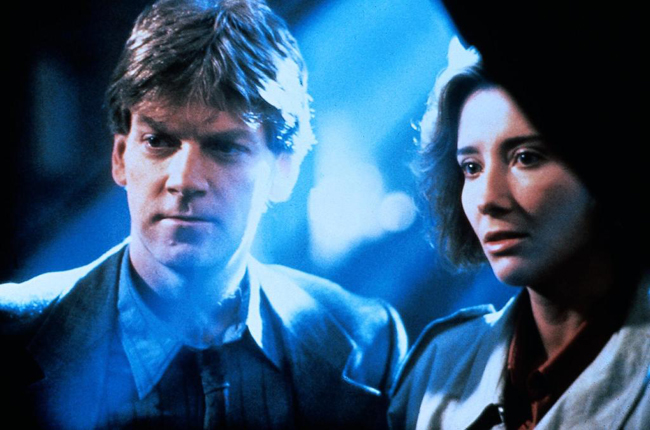
Kenneth Branagh’s films as a director tend to fall into one of two categories, with most of his films being either classical Shakespeare adaptations (Henry V, Hamlet, As You Like It) or big budget studio blockbusters (Thor, Cinderella, Murder on the Orient Express). However, Branagh also had some fascinating anomalies in his early career, with the noir mystery Dead Again chief among them. In addition to directing the film, Branagh played double duty and cast himself as the private eye Mike Church.
Church investigates the mysterious appearance of Grace (Emma Thompson), a woman with amnesia who suffers from horrifying dreams that she can’t comprehend. As Church looks deeper into Grace’s condition, he becomes aware that events a half century earlier may continue to haunt their souls and intertwine their lives. With stylized flashbacks featuring Branagh and Thompson in different roles, as well as a gripping supernatural mystery, Dead Again proves to be an entertaining marriage of Hitchcockian suspense and grounded fantasy.
9. Rogue Trader
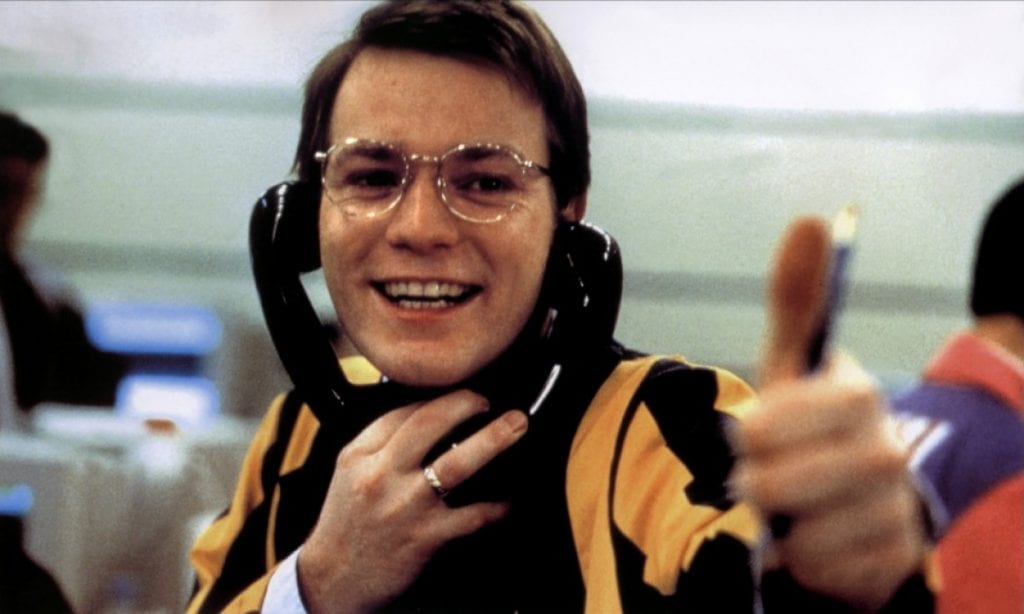
1999 was the year that Ewan McGregor broke big with international audiences thanks to his performance as a young Obi-Wan Kenobi in Star Wars: Episode I- The Phantom Menace, but he also had an underrated role that same year in the thriller Rogue Trader. Based on a true story, the film stars McGregor as Nick Leeson, a British bank trader who inadvertently caused the collapse of Barings Bank with his severe gambling debt.
McGregor is a gifted leading man and a gifted character actor, and Rogue Trader is the type of film that allows him to be both; while there are points where the audience is supposed to relate to Leeson, McGregor does a good job at showing his self-destructive patterns in sickening detail. Although the terminology surrounding the financial collapse is complex, director James Dearden depicts the situations in a digestible way, with a keen eye for Leeson’s emotional investment.
8. First Knight
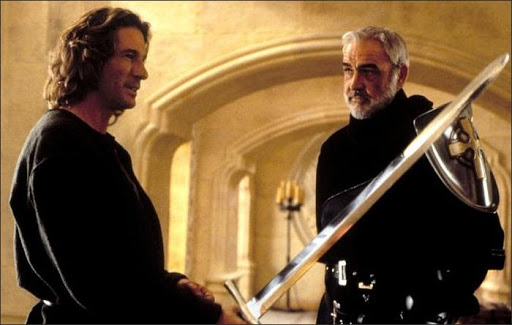
The Arthurian legend is one of the great works of fiction that, thanks to it being public domain, has been adapted countless times over several generations. While there may not be one singularly definitive King Arthur depiction in cinema, there have been many interesting adaptations over the years, with 1995’s First Knight among them. The film depicts Lancelot (Richard Gere) as a self-serving, Han Solo type rogue who saves Guinevere (Julia Ormand) from marauders and wins her heart, calling into question her relationship to Arthur (Sean Connery).
Instead of relying too heavily on the sorcery, First Knight captures the romantic and emotional intimacy of the Arthurian story, with Lancelot as a reluctant hero who comes to learn of the importance of Camelot and the weight thrust upon Arthur’s shoulders. Gere is highly entertaining as the sly swordsman who becomes a man of honor, and few screen actors have captured the intensity and grace of King Arthur like Sean Connery. Ben Cross also gives a memorable side performance as the villainous Malagant, a vengeful former Knight of the Round Table who seeks the throne for himself.
7. Gods and Monsters
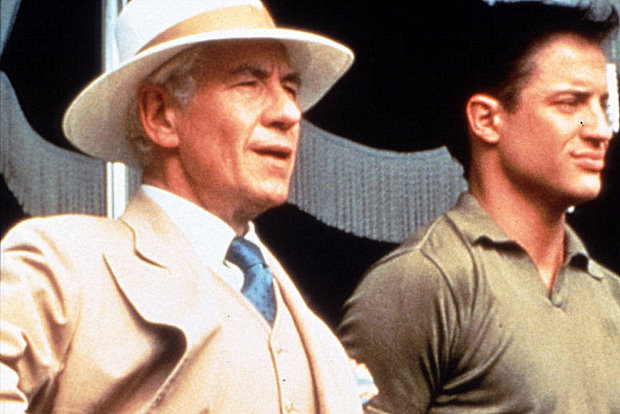
Gods and Monsters is a must watch for films of classic cinema, as it explores the life of the legendary director James Whale, who directed such films as Frankenstein, The Invisible Man, and The Bride of Frankenstein. Ian McKellen stars as an older Whale who lives his final few weeks in his elaborate home, contemplating how his repressed homosexuality and combat experience in World War I have affected his life. Whale finds a new source of inspiration when he becomes fascinated by his new gardener Clayton Boone (Brendan Fraser).
It’s a fascinating picture of an artist coming to grips with his life, and the allusions to Whale’s films help to craft a poignant picture of how he deals with his own mortality. McKellen is reserved, yet playful, and the terrific chemistry he has with Fraser helps to breathe life into what could’ve been another stale biopic. Not only is it the best performance of McKellen’s career, but it’s one of the most engaging examinations about the legacy of film.
6. Pi
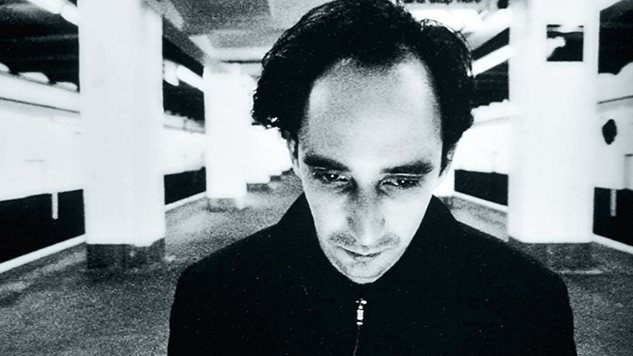
Darren Aronofksy has never been a filmmaker who utilizes conventions or treads upon familiar concepts, but his directorial debut Pi is perhaps his most stylistically distinct and philosophically engaging work to date. The black and white noir story follows the frantic life of mathematician Max Cohen (Sean Gullette), a paranoid theorist who becomes obsessed with finding patterns in both math and the world that surround him. As he inches closer to finding a meaning in the madness, Max becomes convinced that his anxiety is justified and there are exterior forces at play.
Pi is one of the rare films that can be rewatched multiple times just to interpret its meaning. There is certainly an argument to be made that the film is about the search for God, as there are frequent allusions to the Jewish faith and references to Max’s confused beliefs, but there’s also a strong undercurrent of commentary about mental health, as the viewer must consider whether Max is imagining these patterns or if they actually exist. Shot with hypnotizing energy and featuring a breakout role from Gullette, Pi is one of the standout debut films of the 90s.